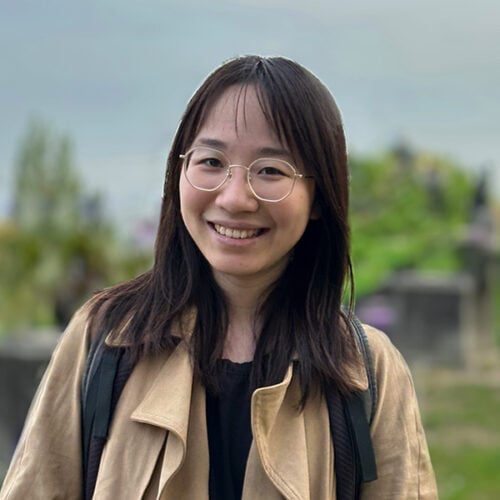Johns Hopkins University is one of nine universities selected by Amazon for its new AI PhD Fellowship program, an initiative that will provide nearly $10 million in funding over two years to more than 100 doctoral students nationwide.
Amazon AI PhD Fellows

Chuanyang Jin
Ph.D. Candidate, Department of Computer Science
Chuanyang Jin focuses his research on developing AI systems with advanced social intelligence, mastering human-level social cognition and engaging positively with humans and society. His current work involves creating AI that can reason about, learn from, and adapt to humans. He is advised by Tianmin Shu. Jin received the Outstanding Paper Award at ACL 2024, the COMAP International Scholarship Award, the Computer Science Prize for the Most Promising Student at New York University.

Amandeep Kumar
PhD candidate in Electrical and Computer Engineering
Amandeep Kumar studies computer vision and generative AI, with a focus on autoregressive transformers, discrete diffusion models, and long-form video generation. In particular, he is working on bridging autoregressive and diffusion-based frameworks and improving the efficiency of video generation models to enable long-form video synthesis with limited compute. He is advised by Vishal Patel. Amandeep earned his bachelor’s degree at Maulana Abul Kalam Azad University of Technology, West Bengal, where he studied 3D image generation and editing, and representation learning. He has presented his work at ICCV 2023 and ECCV 2024.

Tianhao Li
PhD Candidate, Department of Materials Science and Engineering
Tianhao Li studies data-driven materials discovery, with a particular focus on high-entropy materials for clean energy applications. He develops AI-accelerated frameworks to navigate vast compositional spaces, identify thermodynamically stable and economically viable materials, and advance scalable solutions for hydrogen fuel cells and other energy technologies. He is advised by Corey Oses. Before coming to Johns Hopkins, earned his BS in Materials Science and Engineering from Changsha University of Science and Technology and MS in Materials Science and Engineering from Duke University.

Yuxin Ma
PhD Candidate, Department of Applied Mathematics and Statistics
Yuxin Ma studies the theory of deep learning, focusing on the interplay between the structure of data and the neural networks that process it. Her additional research interests include symmetries, size generalization, neural network scaling limits, and building models that learn to solve mathematical problems or to discover new algorithms. She is advised by Soledad Villar and Tim Kunisky. Before coming to Johns Hopkins, she completed, she completed an MMath and a BA degree in Mathematics at the University of Cambridge and she is originally from Nanjing, China

Caio Deberaldini Netto
PhD Candidate, Department of Applied Mathematics and Statistics
Caio Deberaldini Netto works on geometry-aware learning for non-Euclidean data, scaling GNNs, and theory for transferability and generalization. Specifically, he is interested in extending the principles of geometric deep learning to contemporary models and challenges, such as large language models, aiming to make LLMs more interpretable, robust, and efficient, grounded in a rigorous mathematical framework. He is advised by Luana Ruiz. Before coming to JHU, he received his BS and MS in Electrical and Computer Engineering from the University of São Paulo, Brazil, where he was born and grew up.

Jack Zhang
PhD Candidate, Department of Computer Science
Jack Zhang conducts research in the Center for Language and Speech Processing, where he is advised by Daniel Khashabi and Benjamin Van Durme. His research on natural language processing, particularly in the alignment, safety, and steerability of foundation models and agents, centers on pluralistic alignment, verifiable LLMs, and renewable evaluation benchmarks for safety.

Yang Zhao
PhD Candidate, Department of Civil and Systems Engineering
Yang Zhao is developing human–LLM copilots for decision-making, with emphasis on enhancing the trustworthiness and interpretability of LLMs, strengthening domain-specific reasoning capabilities, and improving the efficiency and reliability of decision support systems. He is advised by Hao Frank Yang. Before joining Johns Hopkins, he earned his bachelor’s degree in Geographic Information Science and master’s degree in Photogrammetry and Remote Sensing from Peking University.

